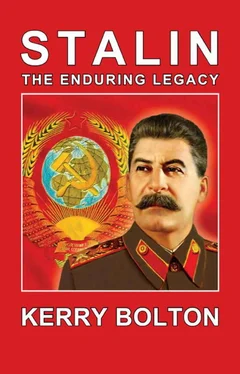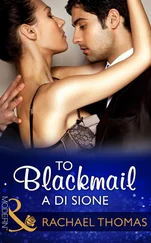The original Bolshevik vision of a mass democratic art, organised as ‘Proletkult’, which recruited thousands of workers to be trained as artists and writers, as one would train workers to operate a factory conveyor-belt, was replaced by the genius of the individual expressing the soul of the people. While in the West the extreme Left and its wealthy patrons championed various forms of modernism, [58] K R Bolton, Revolution from Above, op. cit., 134-143.
in the USSR they were marginalized at best, resulting in the suicide for example of the Russian ‘Constructivist’ Mayakovsky. The revitalisation of Russian-Soviet art received its primary impetus in 1946 with the launching of Zhdanovschina. [59] Overy, op. cit., 361.
The classical composers from the Czarist era, such as Tchaikovsky, Glinka sand Borodin, were revived, after being sidelined in the early years of Bolshevism in favour of modernism, as were great non-Russian composers such as Beethoven, Brahms and Schubert. [60] Ibid., 366-367.
Maxim Gorky continued to be celebrated as ‘the founder of Soviet literature and he continued to visit the USSR, despite his having moved to Fascist Italy. He returned to Russia in 1933. [61] Ibid., 366.
Modernists who had been fêted in the early days of Bolshevism, such as the playwright, Nikolai Erdman, were relegated to irrelevance by the 1930s. [62] Ibid., 371.
Jazz and the associated types of dancing were condemned as bourgeoisie degeneracy. [63] Ibid., 376.
Zhdanov’s speech to the Central Committee of the Communist Party of the Soviet Union (Bolshevik) intended primarily to lay the foundations of Soviet music, represents one of the most cogent recent attempts to define culture. Other than some sparse references to Marx, Lenin and internationalism, the Zhdanov speech should rank alongside T S Eliot’s Notes Towards A Definition of Culture [64] T S Eliot, Notes Towards the Definition of Culture (London: Faber and Faber, 1967).
as a seminal conservative statement on culture. The Zhdanov speech also helped set the foundation for the campaign against ‘rootless cosmopolitanism’ that was launched several years later. Zhdandov’s premises for a Soviet music were based on the classical and the organic connexion with the folk, striving for excellence, and expressing lofty values, rejecting modernism as detached from folk and tradition.
And, indeed, we are faced with a very acute, although outwardly concealed struggle between two trends in Soviet music. One trend represents the healthy, progressive principle in Soviet music, based upon recognition of the tremendous role of the classical heritage, and, in particular, the traditions of the Russian musical school, on the combination of lofty idea content in music, its truthfulness and realism, with profound, organic ties with the people and their music and songs◦– all this combined with a high degree of professional mastery. The other trend is that of formalism, which is alien to Soviet art, and is marked by rejection of the classical heritage under the guise of seeming novelty, by rejection of popular music, by rejection of service to the people in preference for catering to the highly individualistic emotions of a small group of select aesthetes. [65] Zhdanov, op. cit., 6.
While some in the Proletkult, founded in 1917 were of Futurist orientation, declaring like the poet Vladimir Kirillov, for example, that ‘In the name of our tomorrow, we will burn Raphael, we will destroy museums, we will trample the flowers of art’, the Proletkult organisation was abolished in 1932, [66] Encyclopaedia of Soviet Writers, http://www.sovlit.net/bios/proletkult.html
and Soviet culture was re-established on classical foundations. Khdanov was to stress the classical heritage combined with the Russian folk traditions, as the basis for Soviet culture in his address:
Let us examine the question of attitude towards the classical heritage, for instance. Swear as the above-mentioned composers may that they stand with both feet on the soil of the classical heritage, there is nothing to prove that the adherents of the formalistic school are perpetuating and developing the traditions of classical music. Any listener will tell you that the work of the Soviet composers of the formalistic trend is totally unlike classical music. Classical music is characterised by its truthfulness and realism, by the ability to attain to unity of brilliant artistic form with profound content, to combine great mastery with simplicity and comprehensibility. Classical music in general, and Russian classical music in particular, are strangers to formalism and crude naturalism. They are marked by lofty idea content, based upon recognition of the musical art of the peoples as the wellspring of classical music, by profound respect and love for the people, their music and songs. [67] Zhdanov, op. cit., 6-7.
Zhdanov’s analysis of modernism in music and his definition of classic culture is eminently relevant for the present state of Western cultural degeneracy:
What a step back from the highroad of musical development our formalists make when, undermining the bulwarks of real music, they compose false and ugly music, permeated with idealistic emotions, alien to the wide masses of people, and catering not to the millions of Soviet people, but to the few, to a score or more of chosen ones, to the ‘elite’! How this differs from Glinka, Chaikovsky, Rimsky-Korsakov, Dargomyjsky and Mussorgsky, who regarded the ability to express the spirit and character of the people in their works as the foundation of their artistic growth. Neglect of the demands of the people, their spirit and art means that the formalistic trend in music is definitely anti-popular in character. [68] Ibid., 7
Zhdanov addressed a tendency in Russia that has thrived in The West: that of the ever new and the ‘theoretical’ that is supposedly so profound as to be beyond the understanding of all but depraved, pretentious or commodity-driven artistic coteries in claiming that only future generations will widely understand these artistic vanguards. However, Stalinist Russia repudiated the nonsense and exposed the emperor as having no clothes:
It is simply a terrible thing if the ‘theory’ that ‘we will be understood fifty or a hundred years hence’, that ‘our contemporaries may not understand us, but posterity will’ is current among a certain section of Soviet composers. If this altitude has become habitual, it is a very dangerous habit. [69] Ibid.
For Zhdanov, and consequently for the USSR, the classics were a folkish manifestation arising from the soul of the Russian people, rather than being dismissed in Marxian manner as merely products of bourgeoisie culture. In fact, as indicated previously, it was modernism that was regarded as a manifestation of ‘bourgeois decadence’. Zhdanov castigated the modernists as elitist, aloof, or better said, alienated from the folk. On the other hand the great Russian classicists, despite their class origins, were upheld as paragons of the Russian folk culture:
Remember how the classics felt about the needs of the people. We have begun to forget in what striking language the composers of the Big Five, [70] The Big Five◦– a group of Russian composers during the 1860’s: Balakirev, Mussorgsky, Borodin, Rimsky-Korsakov, Cui.
and the great music critic Stasov, who was affiliated with them, spoke of the popular element in music. We have begun to forget Glinka’s wonderful words about the ties between the people and artists: "Music is created by the people and we artists only arrange it." We are forgetting that the great master did not stand aloof from any genres if these genres helped to bring music closer to the wide masses of people. You, on the other hand, hold aloof even from such a genre as the opera; you regard the opera as secondary, opposing it to instrumental symphony music, to say nothing of the fact that you look down on song, choral and concert music, considering it a disgrace to stoop to it and satisfy the demands of the people. Yet Mussorgsky adapted the music of the Hopak, while Glinka used the Komarinsky for one of his finest compositions. Evidently, we shall have to admit that the landlord Glinka, the official Serov and the aristocrat Stasov were more democratic than you. This is paradoxical, but it is a fact. Solemn vows that you are all for popular music are not enough. If you are, why do you make so little use of folk melodies in your musical works? Why are the defects, which were criticised long ago by Serov, when he said that ‘learned’, that is, professional, music was developing parallel with and independently of folk music, repeating themselves? Can we really say that our instrumental symphony music is developing in close interaction with folk music◦– be it song, concert or choral music? No, we cannot say that. On the contrary, a gulf has unquestionably arisen here as the result of the underestimation of folk music by our symphony composers. Let me remind you of how Serov defined his attitude to folk music. I am referring to his article The Music of South Russian Songs in which he said: ‘Folk songs, as musical organisms, are by no means the work of individual musical talents, but the productions of a whole nation; their entire structure distinguishes them from the artificial music written in conscious imitation of previous examples, written as the products of definite schools, science, routine and reflexes. They are flowers that grow naturally in a given locale, that have appeared in the world of themselves and sprung to full beauty without the least thought of authorship or composition, and consequently, with little resemblance to the hothouse products of learned compositional activity’. That is why the naivete of creation, and that (as Gogol aptly expressed it in Dead Souls) lofty wisdom of simplicity which is the main charm and main secret of every artistic work are most strikingly manifest in them. [71] Zhdanov, op. cit., 7-8.
Читать дальше












